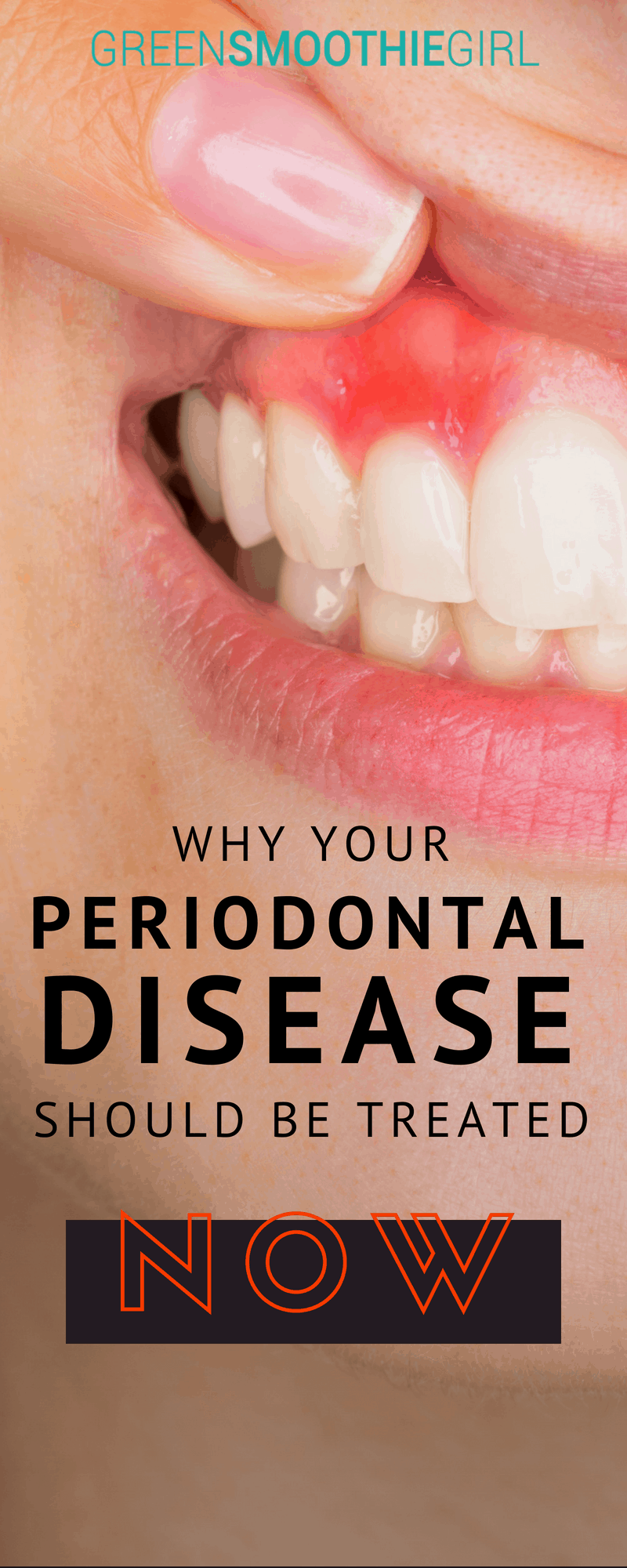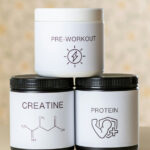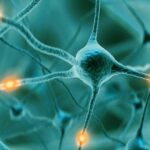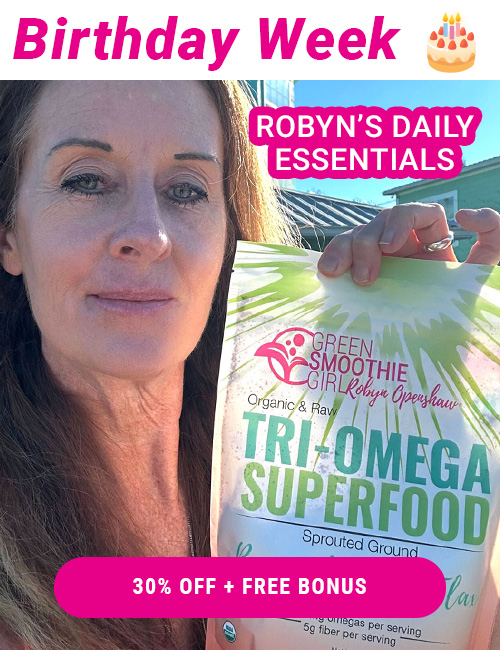Why Your Periodontal Disease Should Be Treated NOW
This is an interview I did with Dr. Scott Chandler, DDS, of Payson, Utah. He’s a biological dentist, and we’re talking about gum disease and gum infections.
Generally speaking, biological (or holistic, or functional) dentists educate themselves far outside what is taught in dental schools.
You’ll learn quite a bit about your overall health from a biological dentist like Dr. Chandler, beyond what your traditional dentist knows to teach you. Enjoy the interview!
Robyn Openshaw: Hi, everyone.
Today, we have a great interview with Dr. Scott Chandler, a biological dentist who practices in Payson, Utah.
He’s been doing biological dentistry and stepping way outside of what I call “standard of care dentistry” for a long time. Welcome, Dr. Chandler.
Dr. Chandler: Thank you, Robyn. I’m looking forward to it.
Robyn: Let’s talk about periodontal disease. We’re going to talk about the holistic or biological dentist approach to it–what periodontal disease is and why it’s a problem in the long term.
Dr. Chandler: Okay. We’ll start with the basics, which are that the mouth traps bacteria, and when there’s an overgrowth of bacteria, it causes inflammation in the gums. The inflammation starts to wear away the bone underneath the gums that support the teeth.
As you lose the bone support around the teeth, the teeth get loose and fall out. In that process, the pockets of the gums around the teeth start to get deeper and trap more bacteria, and it becomes harder to treat. So it’s a snowball effect, and if you don’t catch it in time, it can cause tooth loss, along with bigger health concerns.
Robyn: Okay, periodontal disease isn’t necessarily, “Oh, I have some inflammation in my gums. They’re red and puffy and bleeding.”
It actually affects your heart health and can cause cancer and neurological disease. Will you talk about what the research tells us about the risks of having long term periodontal disease?
Dr. Chandler: One of the first risks that comes to mind is heart health. They’ve discovered when they replace the stents in coronary arteries, or when they clean out the plaque in patients that are having heart attacks and strokes, one of the major pathogens in those coronary arteries is the bacteria that’s predominant in gum disease.
These bacteria stick in the plaque in the coronary arteries and cause occlusion in the arteries that lead to strokes and heart attacks.
The other part of the picture is bacteria cause systemic inflammation that we measure through C-reactive protein. The inflammation in the gums raises the C-reactive protein, so it’s a primary factor in many cancers.
There’s another bacteria specific to periodontal disease that they find in great numbers in breast tissue and malignant tumors in breast cancers, in colorectal cancers, and many others. There’s many different ways that this mouth bacteria affects the health of the body.
Robyn: There’s a lot of evidence that inflammation, bacteria, and infection in our mouths is leading to cancers. But also, Alzheimer’s and Parkinson’s are linked to periodontal disease, along with metabolic syndrome that affects your weight, high blood pressure, stroke, arthritis, and tons of different diseases.
Let’s talk about how periodontal disease can be treated. How does a biological dentist approach this problem?
Dr. Chandler: One of the major factors in healing gum disease for most patients is nutrition. If a patient’s going to heal their gum disease, nutrition has to be part of the conversation. Lots of vitamin C is imperative for patients to heal gum disease.
If they have digestive issues and they’re not absorbing nutrients, that will show up in the mouth as gum disease. So a biological dentist does a lot of work with vitamins and nutrition and coaching patients on nutritional therapies, not just cleaning your teeth and sending you home with a new toothbrush.
Also, there are some technologies out there, like an electric toothbrush. There is a water pic that is very helpful that’s called the Hydro Floss. It magnetizes the water, so it creates a force field on the teeth that keeps the plaque from sticking as easily and reduces plaque accumulation by almost 70%.
Robyn: Can I get one from you?
Dr. Chandler: You can buy them online, but we usually sell them for less than you can buy it yourself. That’s typical with electric toothbrushes as well. If you’re in the market for one, see your dentist, and you can get a better deal than you can over the counter.
It’s typical for standard dentists to use mouthwashes such as chlorhexidine, which is a chemical mouthwash that’s really not good for you. As part of the process of long term maintenance, biological dentists use holistic products, like a prophy paste for cleaning the teeth that is made from essential oils. We also use mouth rinses that are predominantly essential oils and hydrogen peroxide that performed better in blind studies than typical dental products.
Also, many biological dentists have implemented laser therapy into periodontal treatments. Laser therapy is a critical component because in the past our goal with periodontal disease has been to stop the progression of the disease and tell patients, “You have irreversible jawbone damage, so let’s try to stop it and maintain it as long as we can.”
With laser therapy, we’re actually seeing some regrowth of bone in some of these pockets and areas around the teeth. If you can regrow bone, then you’re going to be in a lot better condition, and laser technologies can help that happen.
Robyn: Does somebody need to come into the office for laser treatment, or can they buy one and take it home? How much are the lasers that you sell?
Dr. Chandler: We don’t sell lasers to patients, because the one that we use for therapy isn’t affordable for personal use. A lot of naturopath doctors do sometimes sell those to patients, and you also can buy those on Amazon.
We are starting to do a lot of therapy with low-level laser light, which speeds up healing and introduces light. It travels through the whole body and improves things all over, which can be very effective.
This protocol with these lasers is different. It’s the equivalent of going to the periodontist and having your gums peeled back off the bone, having the root surface thoroughly cleaned, and then having everything stitched back up again.
With a laser, we can do that without peeling back the gums back and using stitches, and patients experience very little to no pain – along with improved healing. In fact, patients sometimes forget that they’ve just had surgery and aren’t as careful as we’d like them to be. But it’s a significant improvement on traditional periodontal therapies.
Robyn: If I were your patient, how many times would I need to come in to be treated?
Dr. Chandler: Usually we’ll do most of the treatments in two appointments, which takes care of the whole mouth. That’s all most patients need, depending upon their oral care routines and diets.
Of course, there are some factors like heredity and diabetes that will affect your teeth and gums no matter what you do. I have some dental hygienist patients who have had bone loss and gum recession, and they know how to brush and floss their teeth. Sometimes there are other factors at play.
Robyn: So it’s not just brushing and flossing. What I like about biological dentists is that you try to convince your patient to look at the foundational diet that creates the problem or prevents the problem in the first place. Talk about the kind of diet that can help prevent dental problems.
Dr. Chandler: You know, there’s a dentist back East, and his theory is that the bacteria in the mouth should be more like a holistic garden and not like a desert. It’s normal for the microbiome of the mouth to contain many different types of organisms.
With some of the toothpastes and products we use, we kill everything, and we need some of that good bacteria to keep our mouths healthy. That’s something that needs more research.
We need to be careful with a lot of charcoal or certain essential oils and things that could upset the natural flora in the mouth. Those products might not provide as much benefit as we think.
Nutritionally, I think basic vitamins like C, D, D3 and K2 together, and magnesium are very important. Thousands of body functions depend on magnesium, and most of us are critically low. We really recommend patients increase their magnesium levels.
Of course, you should follow a good healthy diet and brush and floss–but even flossing can be dangerous because it can cut the gums and introduce bacteria.
So recommendations are changing, and now you should floss without getting into or under the gums. Our advice evolves, but as biological dentists, we always recommend basic home care and good nutrition.
Robyn: All right, so what do you recommend for good disease prevention in the mouth?
Dr. Chandler: I recommend probiotics like probiotic mouth mints to promote healthy bacteria in the mouth. We recommend Xylitol, because it’s a natural sugar that the bacteria in the mouth can’t digest–so they starve to death.
Just make sure the product has more than trace amounts of Xylitol and isn’t primarily flavored with chemical sweeteners, the way Trident is.
Robyn: Is there a link between periodontal disease and premature babies and low birth weight?
Dr. Chandler: Years ago they used to say that smokers had a lot higher rate of premature delivery and low birth weight babies. What they discovered was that smoking contributes to gum disease, so maybe it wasn’t smoking as much as it was the prevalence of periodontal disease that caused low birth-weight babies.
What it boils down to is that when the body’s under stress and recognizes an infection, it tries to lower the overall load on the body. Pregnancy is an immense load, so sometimes the body ends the pregnancy earlier than we would like as a results of the overall stress.
Robyn: What you’re saying is that it’s more likely that smoking caused periodontal disease, and that’s what caused these low birth weight babies and spontaneous abortions.
Dr. Chandler: Yes, correct.
Robyn: What raises my risk for periodontal disease?
Dr. Chandler: Diabetes is one of the biggest risks, because you just don’t heal as well when you’re diabetic. Many diabetics are very poor at controlling their sugars, and sugar wreaks havoc on the body.
Again, genetics and poor nutrition, which we mentioned before, are some of the biggest factors.
Not taking care of your teeth, forgetting to brush and floss, or having poor technique can increase your risk. Some patients brush and floss three times a day but still have gum disease because they’ve never been taught to brush and floss properly. Your dentist and dental hygienist can teach you how to do that correctly, and tools like the Hydro Floss and the electric toothbrush are critical.
Robyn: Dr. Chandler is going to come back to do another interview on energy medicine as it relates to our overall dental health. It’s an unusual topic that many biological dentists have not specialized in, so come back and hear what he has to say.
As a last question for you, Dr. Chandler, tell us what your favorite kinds of issues are to treat in your biological medicine practice.
Dr. Chandler: That’s a good question. One of my favorites recently is cavitations. We are treating cavitations a little differently than some other biological dentists – non-surgically for many patients – and we’re having great success with it.
Also, doing zirconia implants has been a joy. I’ve placed many zirconia implants and have some in my own mouth unfortunately. Those are two of the things I enjoy most.
Robyn: I hope this interview brings you some new patients who are discovering what biological dentistry has to offer. Thanks so much for being with us today.
Dr. Chandler: Thanks, Robyn.
Robyn Openshaw, MSW, is the bestselling author of The Green Smoothies Diet, 12 Steps to Whole Foods, and 2017’s #1 Amazon Bestseller and USA Today Bestseller, Vibe.
This article may contain affiliate links, which allows you to support our mission (as well as demonstrate market demand for safer products) without costing you extra.
Posted in: Dental Health

















